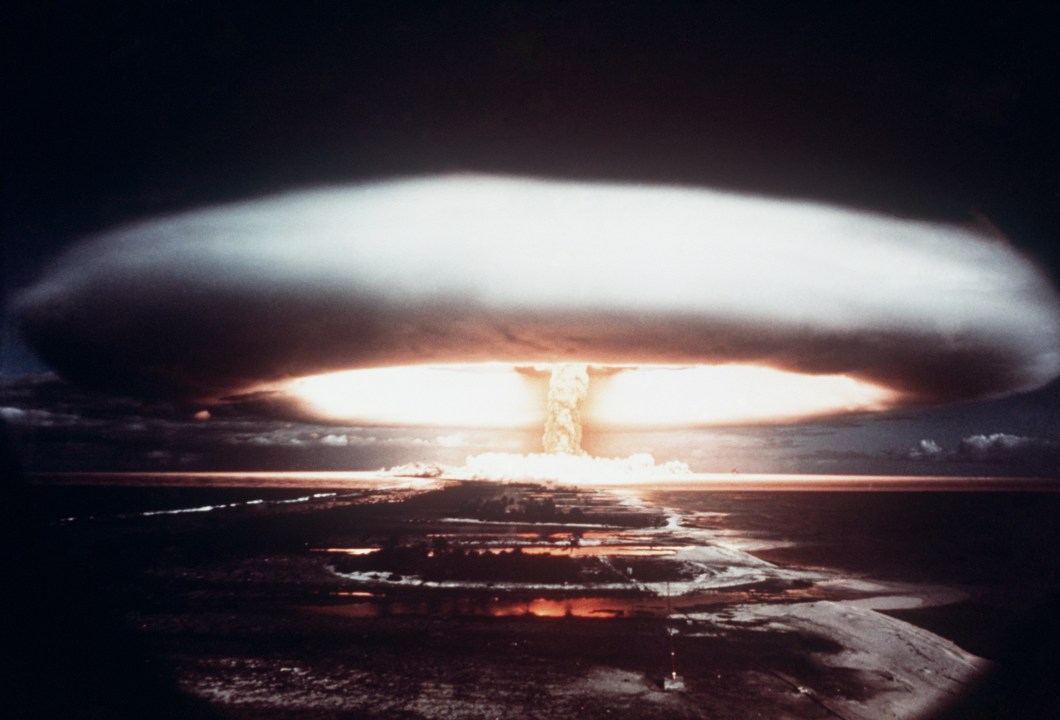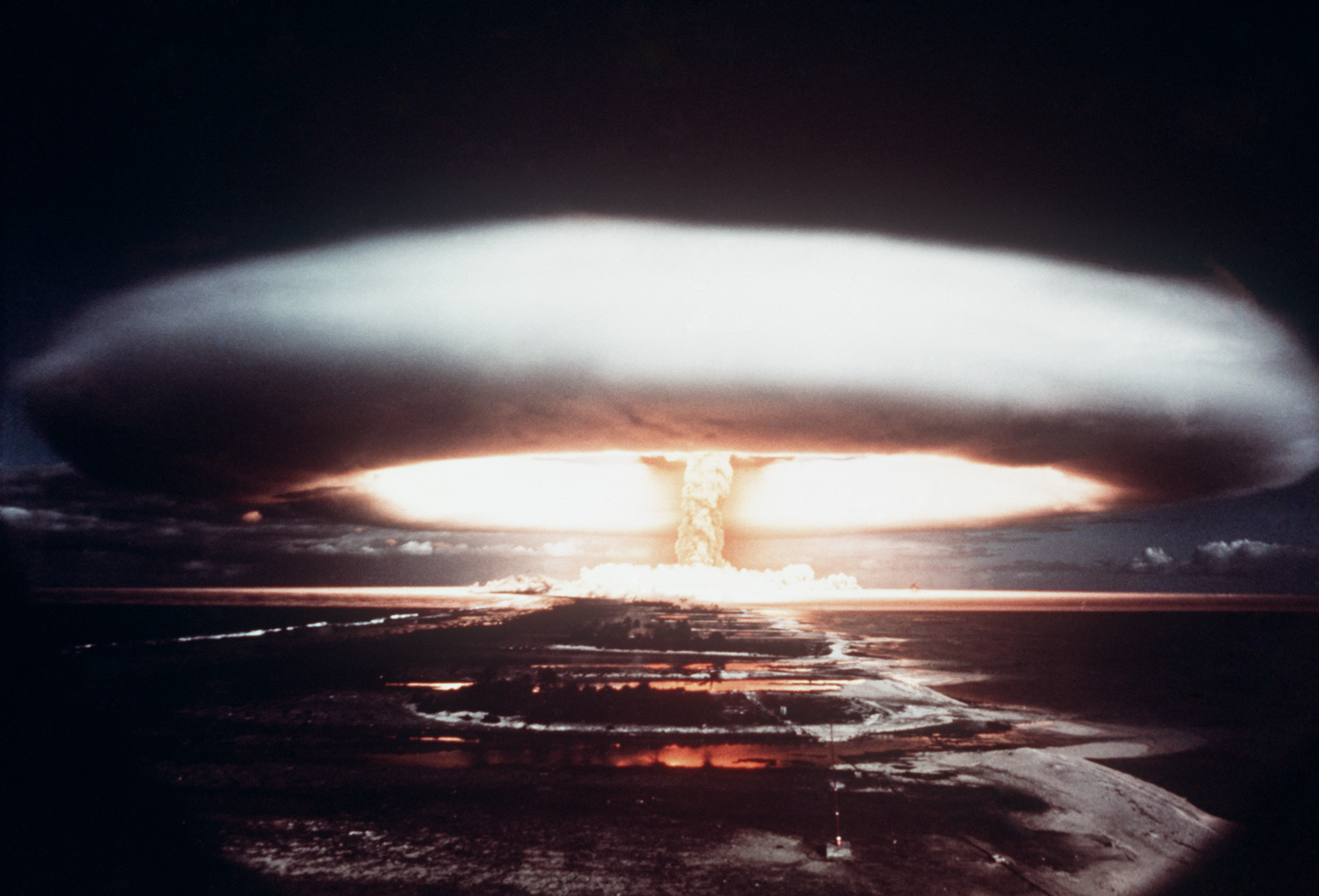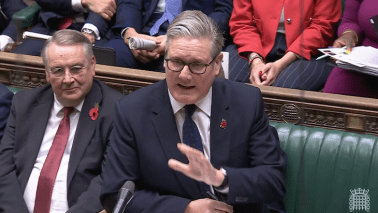The eyes of the world are upon us. Or so Scottish Nationalists like to say. Whae’s like us? There is some truth to this even if you think unseemly all the boasting we heard about the number of foreign journalists attending, say, the launch of the Scottish Government’s White Paper on independence. It’s all a bit Sally Field for me. A kind of cringe, if you will.
What’s less frequently said is that almost all foreign governments would prefer Scotland to vote No. “We all prefer the status quo” one western diplomat told me recently. “That’s just the way states operate.” Known things are preferable to unknown things, even if the unknown things might be fine.
Which brings me to Lord Robertson of Port Ellen’s speech to the Brookings Institute yesterday. Islay’s finest suggested Scottish independence might have “cataclysmic” geo-political consequences, an unfortunate – and perhaps needlessly inflammatory – suggestion declared “insulting and offensive” by Nicola Sturgeon.
As it happens, I think Robertson could have chosen his words more carefully. It is difficult to talk about “the forces of darkness” who might welcome Scottish independence without seeming just a little bit odd.
Nevertheless – and in solipsistic Scotland this seems to have been missed – it is worth observing that Robertson was not actually talking about Scotland. Not really. He was talking about Britain.
Robertson is a Unionist and he thinks Britain would be left weaker if Scotland votes for independence. I see nothing controversial about that. By definition decimating the United Kingdom must leave it smaller than it was pre-decimation. Weaker too. Perhaps even less influential.
If we really are Better Together the betterness applies to the rump UK as well as to Scotland. That is, Scotland matters to the UK just as surely as, from a Unionist perspective, the UK matters to Scotland. Collectively we are greater than the sum of our individual parts.
Perhaps you disagree with that. Fine. But that’s what Robertson was arguing. He was at Brookings to discuss the international implications of independence. He may be mistaken in thinking that “The loudest cheers for the breakup of Britain would be from our adversaries and from our enemies” but that doesn’t make his argument disgraceful or insulting or even, god help us, offensive.
He was not, I think, suggesting that voting Yes makes you a de facto ally of Vladimir Putin or the Iranian mullahs. He was, instead, arguing that independence would be a disaster for Britain. (Whether it would be a disaster for Scotland is a different matter. Lord Robertson certainly believes it would be sub-optimal but that, again, was not the focus of his remarks.) Rather than bullying or threatening Scots he was, I think, taking a detached view of the argument, analysing it not simply in terms of Scotland and England but, instead, in terms of Britain and the world.
A weaker Britain – weaker not least because the UK’s armed forces and defence needs would, presumably, remain the same but require to be recruited from not much more than 90% of its present population – would be less well-placed to play a leading role in international affairs. Which is why he thinks independence would cheer “the dictators, the persecutors, the oppressors, the annexers, the aggressors and the adventurers around the planet”.
You may think this exaggerated. You might even think it nonsense. But that rather depends, I fancy, on whether you think the United Kingdom a force for good in international affairs. Not perfect and not without its share of past blunders but, in general and on the whole, one of the better guys.
Which led Robertson to worry that:
I fear from time to time that we Scots are living in a veritable bubble in this debate and outside of that increasingly fractious bubble, we’re losing sight of the fact that our decision on the 18th of September will have much wider and bigger implications that any of us yet grasp.
On this, actually, the noble Lord and his nationalist opponents agree. But where nationalists see independence as exemplary, Robertson (and others) consider it cautionary. It’s a kind of constitutional Rorschach test.
The unity of Spain or Belgium are questions to which I am supremely indifferent not least because these are matters for others to determine. Nevertheless, it’s certainly the case that some Scottish nationalists cheer on the Catalan separatists (and vice versa) and you can see why the Spanish government might be hostile to Scottish independence for fear it would encourage Spain’s own centrifugal forces. Perhaps Scottish independence would not have any international impact or spillover effects but, from the perspective of politicians for whom the status quo is comfortable, you can see why they fear what Robertson termed the Balkanisation of europe. You need not agree with him to understand that it’s hardly an idiotic or ignoble perspective.
As it happens, Lord Robertson was not the only prominent Scotsman speechifying in the United States this week. Alex Salmond was in New York where he spoke about an independent Scotland’s (figurative) place in the world. Much of it, frankly, was the usual boilerplate stuff about Scots’ contributions to the United States and little of it was in any way objectionable. Scotland would aspire to be “a good global citizen” working “in partnership with countries across the planet” and who could really be driven mad by that sort of padding?
“You can aspire to be a great nation, without desiring to be a great power” the First Minister said which, of course, is both true and, in Scotland’s case, meaningless since the opportunity to be a great power is not available. But here we find Salmond’s critique of Britain: most nations cannot be a great power “and they reduce their chance to be a great nation, if they pretend to be a great power.” In case you missed the message, he added that he seeks a Scotland “whose importance is judged on its usefulness to the rest of humanity, not on fading imperial grandeur”.
Which is fine and a perfectly respectable perspective. But also one, I hazard, that shows the limitations of the SNP’s understanding of Britain. There is a view in nationalist circles that there is something ridiculous about Britain’s role in the world.
It is time, as the Irish say, Britain copped on to itself. Time she recognised that the sun set on empire long ago and that it ain’t ever going to shine again. Time she accepted she’s just another second, or perhaps even third-rate, power with neither the right nor the ability to insist upon a leading international role. Her foreign policy runs the gamut all the way from folly to calamity and there sure as hell isn’t anything of which to be proud. On the contrary, introspective shame would be more appropriate. Here, more than in most places, you hear remnants of a leftism the modern SNP has generally preferred to marginalise.
But most people in Britain don’t think this way. It’s possible most people in Scotland don’t think this way. They don’t necessarily see Britain’s still-modestly-leading role in the world as an absurdity or some brand of posturing foreign policy peacockery. They see, instead, a country that is, generally speaking, a force for good that tries to spread good principles to other parts of the world. (Consider, for instance, William Hague’s efforts to establish the principle that organised rape should be considered a war crime.)
Of course there are moments of hyprocrisy. Times when rhetoric and action are ill-matched. Such is the price of power and responsibility. The world is not as we might wish it and we lack the power to rearrange it thus. Sometimes, quite often in fact, we must endure imperfect reality. But you do what you can where you can when you can. That was a view that, generally speaking, Tony Blair shared with both his immediate predecessors. If not us, then who?
Nor is this only a matter of hard power (though that is important). Soft power, as Salmond and everyone else agrees, is important too. It is not a commodity Britain lacks. Even so and as we see in the Ukraine and elsewhere hard power still matters. An independent Scotland will not, of course, be a major military player but it will be expected to play its part. Why else would it join NATO?
(Suppose, just for a moment, Scotland had become independent in 2000 and become a NATO member? Would she have sent troops to Afghanistan? She would have been expected to since that was a Treaty War. Would she have deployed some troops to Iraq? Perhaps not, though quite possibly. Many NATO members did, after all.)
I digress. The point is that there is an odd discrepancy in the nationalist approach to foreign and defence policy. It is only right and seemly that an independent Scotland would do its bit for international order, all the better to make its mark on the world. But it is obviously absurd and vainglorious for the United Kingdom to do the same. (The Nats take no view, I think, on French actions. I assume this is because it is not axiomatic that Paris is the bad guy.)
The UK is not, as despite everything the United States remains , an indispensable country. That is, intractable international problems can be solved, or at least ameliorated, without UK involvement. But it becomes, most of the time and in most places, easier for those problems to be addressed if countries such as the UK and France take them seriously and exert what pressure and influence they can. The nationalist tendency (I put it no stronger than that) towards myopia prevents them from seeing this clearly, however.








Comments